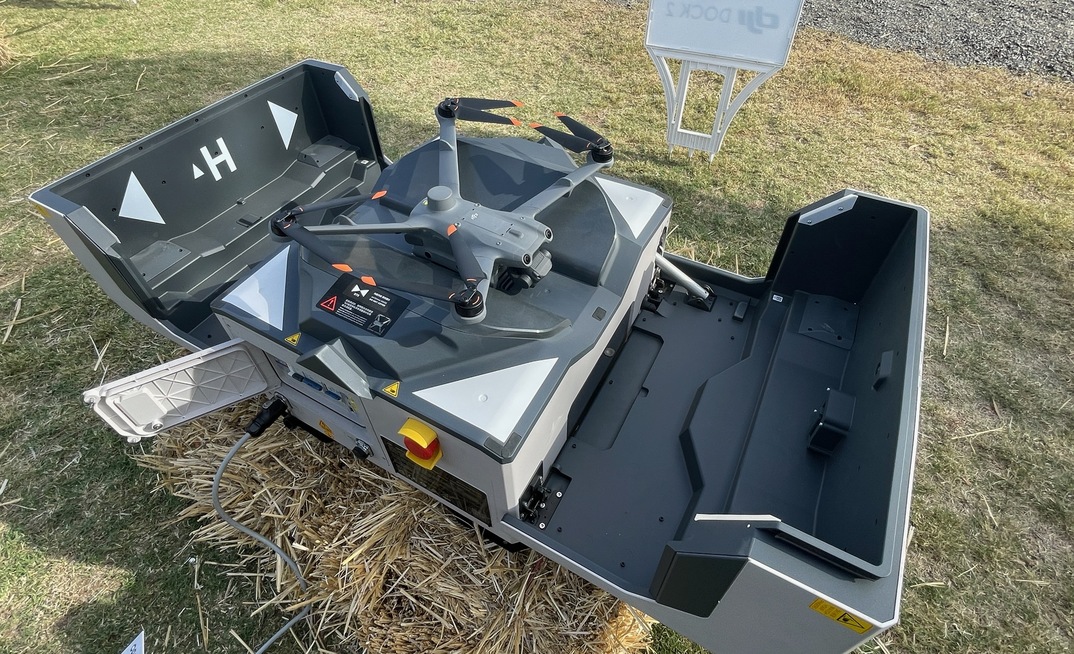SOME of the latest drone technology won the Wimmera Machinery Field Days (WMFD) Ag Business Innovation Award at Horsham, Victoria.
The WMFD event was held this week over three days where the Innovation Award was presented to an autonomous drone docking system.
Displayed by Droneland Australia, the DJI Dock 2 system is a compact and portable unit that can be placed on site and operated remotely.
Droneland Australia account manager, Lachie Stuart, said the "drone-in-a-box' technology is compatible with the DJI Matrice 3 series drones, including the Matrice 3 TD, providing a fully autonomous, remote-controlled solution for a wide range of tasks.
YOU MIGHT ALSO LIKE
"The DJI Dock 2's versatility enables it to support numerous use cases such as yield estimation, harvest optimisation, bird deterrent systems, infrastructure monitoring, and thermal crop health imaging," Stuart said.
"Droneland has the ability to deploy the docking stations for many of these applications, offering real-time data collection and actionable insights to farmers and land managers."
The DJI Dock 2 weighs around 35kg and operates with a 240 volt input. Combined with Starlink, the remotely deployed system has a rugged design and a fully-sealed compartment that protects the drone and station from the elements when not in use.
Drone charging is done wirelessly via an induction pad, which is similar to the technology used in modern electric vehicles for phone charging.
Equipped with an array of sensors, the dock hardware can monitor environmental conditions such as wind speed, temperature, and rain. It also includes a built-in camera and spotlight for additional functionality.
The system ensures continuous connectivity with Starlink satellite-based internet, ideal for uploading raw data from remote areas with limited or no cellular service. The integration of RTK positioning provides reliable location data for drone operations.
Droneland is currently developing a DJI Dock 2 application in Deniliquin, New South Wales. In this particular case, the drone will be used for bird deterrence, helping a rice farm protect crops from ducks that can cause significant crop damage. The drones can also be fitted with acoustic devices and spotlights to effectively scare birds away, preventing yield losses.
Beyond bird management, Droneland's docking system can also be used for other farming tasks, including crop monitoring, precision spraying, and infrastructure inspections. Droneland offers its drone systems as a service, including the collection and delivery of data and imagery in an accessible and user-friendly format.
For more details, visit www.droneland.au























